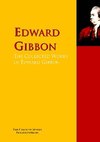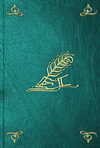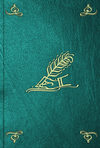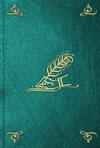Loe raamatut: «Private Letters of Edward Gibbon (1753-1794) Volume 2 (of 2)», lehekülg 23
567.
To Lord Sheffield
Lausanne, June 12th, 1791.
*I now begin to see you all in real motion, swimming from Brighton to Dieppe, according to my scheme, and afterwards threading the direct road which you cannot well avoid, to the turbulent capital of the late Kingdom of France. I know not what more to say, or what further instructions to send; they would indeed be useless, as you are travelling through a country which has been sometimes visited by Englishmen: only this let me say, that, in the midst of Anarchy, the roads were never more secure than at present. As you will wish to assist at the national assembly, you will act prudently in obtaining from the French in London a good recommendation to some leading member; Cazalès,167 for instance, or the Abbé Maury.168 I soon expect from Elmsly a cargo of books; but you may bring me any new pamphlets of exquisite flavour, particularly the last works of John Lord Sheffield, which the dog has always neglected to send. You will have time to write once more, and you must endeavour, as nearly as possible, to mark the day of your arrival. You may come either by Lyons and Geneva, by Dijon and Les Rousses, or by Dole and Pontarlière. The post will fail you on the edge of Switzerland, and must be supplied by hired horses. I wish you to make your last day's journey easy, so as to dine upon the road, and arrive by tea-time.* I rejoyce in the approaching conclusion of my affairs, though the residue of the purchase money has suffered and will suffer most heavy evacuations.
*The pulse of the contre-Revolution beats high, but I cannot send you any certain facts. Adieu. I want to hear My lady abusing me for never writing. All the Severys are very impatient.
Notwithstanding the high premium, I do not absolutely wish you drowned. Besides all other cares, I must marry and propagate, which would give me a great deal of trouble.*
568.
Lord Sheffield to Edward Gibbon
Downing Street, Tuesday, 14th June, 1791.
Your letter of May 31 was received last Friday. As soon as this letter is finished the Family is to set out for Sheffield Place, and from thence we shall move as soon as we can towards Lausanne. We are pressed to pass through France before the Confederation or Commemoration of the 14th July, and if possible we shall be with you before that day. I have much to do in Sussex, but I shall hasten. I shall wish to pass one day at Rouen and three or four at Paris. I hope to quit Sheffield Place about the 28th instant. We expect the Borders of France to be troubled, perhaps Besançon may not be perfectly tranquil. Take care to send a few lines to meet me at the Post Office, Paris.
Louisa is delighted with your empressement to see her. All My Lady's sagacious friends have assured her that it is absolutely necessary to have two men servants on our Travels. Etienne was dismissed six months ago on account of his indecorous conduct towards My Lady's woman. A Swiss was hired in his place, in Livery, another is now hired out of Livery, both of them of the neighbourhood of Lausanne. One may be dismissed when we arrive there, if we can get a place for him.
The chief disagrement I experience is a disappointment about your £4000 mortgage in Yorkshire. The owner sold the Estate. However I insist on compensation, he having engaged the money. I am in treaty about a mortgage near my Yorkshire Estate for £3000. I must do the best I can with the other £1000. It will be extravagant to buy into the Stocks. They never will be higher, and are likely to be lower. If I could get £1000 Subscriptions in the Lewes Navigation at 5 pr. Ct., it would be well secured and well paid, but money is too plentiful; I fear I shall not be able to get it.
LORD SHEFFIELD AN ANTI-DEMOCRAT.
You exceedingly mistake my Politicks. I am as great an Anti-Democrat as Mr. Burke, and so are most of the party; but you are deceived by Burke's speeches. I hold the French proceedings in such abhorrence and dislike as an English Politician, that I shall be in danger of the Lantern.
Remember us with many thanks to de Severy.
Yours ever,S.
The Ladies are impatient for their voyage. The writings were not received till three days ago, and it is impossible for the greatest Philosopher to have signed them with a greater degree of ignorance, &c. Especially those relating to Buriton I must carry to you again.
569.
Lord Sheffield to Edward Gibbon
Sheffield House, 27th June, 1791.
Your letter of the 12th June was graciously received two days ago, and notwithstanding the intelligence we received yesterday morning of the Royal Escape,169 and notwithstanding the probable confusion and warfare that will take place in France, the ardour of the Ladies to go to you is redoubled. My Lady seems scared lest prudence should induce me to halt for intelligence, and cannot endure a delay even for the packet, which will sail on Saturday. No, we must set out after dinner for Brighton, and sail from thence to-morrow for Dieppe. This I should not have undertaken if I had not received a letter from Pelham dated Paris, two days after the elopement, which mentioned that on the second day all was quiet, the National Assembly cool and united, but that he should take care a letter should meet me at Rouen, which would inform me whether it would be advisable to pass thro' Paris. He thinks it may not be easy to get from thence. It is probable I shall be glad to avoid Paris, if so, I may be at Lausanne in a very short time, especially if I find a tolerable road from Rouen to Fontainebleau. From thence I have travelled to Dijon and Besançon to Lausanne. I think there is most danger of difficulty in passing thro' a considerable garrison such as Besançon. If we can approach you we shall wish to arrive in the evening at the time you mention.
Finally, such an undertaking just at this moment will not allow us to be deemed by our acquaintance compos mentis, but we are going to you and may arrive sooner than this letter. I shall write from Rouen however, where I shall stop one day at least.
Yours ever,S.
Alas! just after I had finished I heard the King and Queen are captives. I must go to Rouen before I determine, but I incline to a rapid pass thro' France.
570.
To Lord Sheffield
Lausanne, July 1st, 1791.
FLIGHT AND ARREST OF LOUIS XVI.
*In obedience to your orders, I direct a flying shot to Paris, though I have not any thing particular to add, excepting that our impatience is increased in the inverse ratio of time and space. Yet I almost doubt whether you have passed the sea. The news of the King of France's escape must have reached you before the 28th, the day of your departure, and the prospect of strange unknown disorder may well have suspended your firmest resolves. The Royal animal is again caught, and all may probably be quiet. I was just going to exhort you to pass through Brussels and the confines of Germany; a fair Irishism, since if you read this, you are already at Paris. The only reasonable advice which now remains, is to obtain, by means of Lord Gower,170 a sufficiency, or even superfluity, of forcible passports, such as leave no room for cavil on a jealous frontier. The frequent intercourse with Paris has proved that the best and shortest road, instead of Besançon, is by Dijon, Dole, Les Rousses, and Nyon.* As my larder cannot always be furnished for the doubtful day of your arrival, I must desire that you would make your first appearance, not at dinner time, but at the hour of tea; you may dine at Rolle or Morges. *Adieu. I warmly embrace the ladies. It would be idle now to talk of business.*
571.
Lord Sheffield to Edward Gibbon
Paris, Tuesday, 5th July, 1791.
THE CRISIS IN PARIS.
Neither the Royal Flight or Capture prevented or even interrupted for a day our travels to the Historian. We passed two nights at sea, and we have passed two nights at the Castle of Navarre with the Duke of Bouillon, near Evreux, much more to our satisfaction. Nothing could be more handsome than our reception there. I was glad of the opportunity of shewing to the Ladies, the style of living of one of the first men in France, and at one of the finest places. I came here last night. I have already had an opportunity of good intelligence. Matters of the highest consequence are this moment in agitation.171 They are determined to get rid of the King, but how, is not so easy a business. Many of his enemies are sorry he was retaken, because they know not what to do with him (a Council will be appointed). I believe they would be glad to let him go, if they did not fear the Parisian mobility. The Judges agree that the Gardes de Corps,172 who acted as couriers, cannot be tried. They will be suffered to depart whenever it will be safe. As to the Queen, when I said I was surprised they did not send her home (that is to the Pais Autrichiennes) to avoid mischief to her Person, and also to avert a disagreeable demand, I was told there is no doubt that she will be allowed to go if she pleases. De Bouillé173 has emitted an invitation to Officers and Soldiers to join him. His letter to the National Assembly might have been well enough for a Captain of Grenadiers, but it does not smell of the grand Politician. I understand that scarce a General Officer remains with the Army on the Austrian Border towards – , and that numbers, even whole corps of officers, have deserted, but this I know not with any precision. I think we may go from hence in 4 or 5 days. Matters are coming to a Crisis – therefore you may be sure I shall not stay long lest we should be stopped and not suffered to go from this city, but I expect an introduction to Cazalès, La Fayette, and some others.
Lausanne has the honour of containing Lady Webster174 before this time. People are apt to spoil her. I desire you will not, because it gives me a great deal of trouble to set her right afterwards. Milady writes to her. She and her daughters are well and entertained. We are just come from the Comédie Francoise.
Yours ever,S.
I shall not write again before our departure.
572.
Lord Sheffield to Edward Gibbon
Paris, July 8th, 1791.
The system of getting rid of the King will not do. The night before last the principal men of the Committees, the Chiefs of the National Assembly, about 100 in number, met, and after a considerable debate, they resolved that the Constitution should be maintained, and that the person of the King is inviolable. Only two of them, Messrs. Dumont and Petier, were of a different opinion, and they argued for a tryal. La Clos,175 the friend of the Duke of Orleans, the night preceding the Jacobins, vigorously insisted on a Tyral and a Regency, but it is known that a great majority of the National Assembly wish to restore the King and to put him in the situation he held before his flight, and to give him a Council. The Queen not being a part of the Constitution, they do not intend to take any notice of her; much management is necessary to keep the people quiet, and the Chiefs dare not as yet bring forward moderate measures. The National Guard wish to get rid of the King. The resolution I mention in the beginning of this letter is intended to be kept secret as much as possible for the present. The measure will be carried with some difficulty. I have scarce a moment. On Monday we attend the Apotheosis of Voltaire.176 On Tuesday next we go to the National Assembly for the last time (having the President's Box), and on Wednesday we talk of setting out for La Suisse, but I must stop a day or two at Dijon and one or two perhaps at Besançon. We suppose the Websters lost, because we have not heard from them.
Yours,S.
573.
Lord Sheffield to Edward Gibbon
Paris, 13th July, 1791.
LORD SHEFFIELD AT THE JACOBINS.
We are going at 8 o'clock this morning to the Assembly, lest we should be too late for places to hear the report and debate on the King's Flight.177 It is not likely to finish in one day, but we are not disposed to stay more than 2 or 3 days longer on any account. It will be proper to remain here a day or two just to see whether they really will cut one another's throats. I do not expect it. It does not seem to be their genius to do more than Fishwomen, to scratch and tear one or two to pieces in a cattish fury. Since my last the Democratic enragé seems to have gained ground. I have been placed high on a chair next the President at the Jacobins, having been introduced by Noailles as a good English Patriot amidst much applaudissement. Brissot de Warville178 made (as on m'a dit) the greatest speech that ever was heard. It was well calculated to inflame Frenchmen, but he forgot to use any argument, and utterly omitted to shew that the King had committed any crime against the Law, and finished by moving that the King should be tried. The word enragé does not half describe a French Democrate. The modern men think the speech has made a great impression, and think matters are not in so good train for the King as they were. I have not a moment to say more than that I have seen men and things to great advantages, and I shall write again.
Yours,S.
574.
The Hon. Maria Holroyd to Edward Gibbon
Berne, Oct. 7th, 1791.
The truth is, that I attempted to write to you, the day we arrived here, & found myself unequal to a longer account of things, than just to say – we are eighteen Leagues from Lausanne, & I have made the family lift up their hands & eyes in astonishment, by wishing to walk back that distance. I ought to express my Gratitude for all the kindness and attentions we have met with, during our stay in Switzerland, & if I was less sensible of it, I could compose a fine speech – but I can only say, I can feel, & I hope you will never find me ungrateful. Tuesday we slept at Avenches & arrived here at two o'clock on Wednesday. If you wish to know how we amused ourselves on the Road, I will tell you, by Meditation & Silence. If you wish to know what was the Subject of our Meditations I will answer for myself – Lausanne. Indeed, my Thoughts have not quitted that place, for five minutes, & I begin to wonder, whether I shall ever think of any thing else. Our horse, that had one Wooden & one broken Leg, fell down, & rather damaged a third Leg – so that, as Papa thought if any accident should happen to the fourth, we might find some difficulty in proceeding on our journey, & being rather indignant at their slow method of moving, he has dismissed them, rather too precipitately, as we are now uncertain whether we shall leave this Town to-morrow or a fortnight hence. No horses to be had at present.
Yesterday we went to the Lac de Thun – the day was very fine, & we crossed the Lake to Mr. Fischer's house, where we found his Lady and Mother. We stopped at Mr. de Mulhinen's house in our return – & saw Made. de Mulhinen, who is a very pleasing Woman. Papa was so much pleased with the Lake that he lamented very much that he had not persuaded you & Severy to come with us there & stay two or three days. Perhaps you might have been inexorable, but I wish the other part of the scheme had been thought of a little sooner. I liked the expedition upon the lake very well, but it was not the Lake of Geneva, nor was the Boat St. J. Legard's; & yet, as there was a Lake & a Boat, there was resemblance enough, for me to make comparisons, to the disadvantage of the present time. Mr. Coxe gave Papa a Letter to Mr. Wyttenbach; he has been here, & walked about the Town with us on Wednesday evening, & has made me very happy by promising to send me a Collection of Alpine Plants. He is to take us this morning to shew us the World. Papa is gone with Mr. Fischer on horseback to see Farms. After dinner we are to go to the library, & to-morrow, if we can get horses, we shall go to Bienne. Monr. Fredennick was here this morning, & every body seems to try who shall pay most attention. I wish they would try & be disagreeable, to make me rejoice at being on my return to England. Monr. Wyttenbach is come & prevents me adding any more, than to assure you that I am your ever obliged & affec.
M. T. Holroyd.
575.
The Hon. Maria Holroyd to Edward Gibbon
Strasbourgh, Thursday, Oct. 13th, '91.
SAFE IN THE LAND OF LIBERTY
I felt a strong inclination to write from Basle, but as you said, Berne or Basle & not Berne & Basle, I was afraid of being troublesome. However I take the first moment of my arrival at the next station from whence you desired to hear from me, to tell you we are safe in the Land of Liberty, where the People may sing Ça ira all day & all night, if they like it. Friday, the day I wrote from Berne, we went to Wyttenbach's house, to see his curiosities – & he has made me Wild again about Botany, by giving me a Collection of Alpine Plants – so that now, instead of admiring Nature in general, I have no eyes but for Weeds, & I have made a considerable Collection in my Journey from Lausanne here. The Advoyer came before dinner, & from his suit of Black Powdered Wig & Gold headed cane, I began to be afraid I was ill, & that the Physician was come to give his Opinion. Mr. Fischer dined with us, Mr. Fredennick came after dinner, and they went with us to the Library & walked upon the ramparts. In a part of the Ditch we saw two of the Sovereign Lords of the Pays de Vaud. Their Excellencies were very quiet and rather Rheumatic, but there were two young ones very frisky and playful.
Saturday. We were rather unfortunate in a very rainy Day – & in one of the Springs of the Carriage breaking near Arberg, which delayed us some time. If it had been a fine day, we should have been very disagreeable, but as it was impossible to go to the Island of St. Pierre179 that day, we made up our minds very tolerably. Sunday. The Weather was very favorable, & we went upon the Island, wrote our names in Rousseau's Bed chamber, returned to Bienne to dinner, & went to Moutier the same day. Mama had an opportunity of shewing her heroism – for the last three Leagues we performed by moonlight, & Coxe describes the Road as so narrow, that one Wheel rubs against the Rocks & the other hangs over the Precipice – though this description is poetical, yet there is some foundation for it. We regretted passing thro' such picturesque scenes in the dark, but the next day the Country we passed thro' from Moutier to Basle was exactly the same. I thought after the Tour to the Glaciers, that I should think nothing equal to that part of the World, but the Valley of Munster pleased me more than anything I have seen. Tuesday, we saw the Gardens of Arlesheim, the Library & the dance of death. Mr. Ochs was the only one of Mr. Levade's friends who was at Basle – the others were both in France. The higgledy-piggledy Party came to Basle on Tuesday & were very much in our way on the Road. Papa determined to go to Strasbourgh on the french side of the River, as the Horses on the other side are quite knocked up by transporting Aristocrates to Coblentz. The Craven family with their Guardians, Lord Molyneux and Mr. Nott, took all the horses at the first Post, & tho' they left Basle two hours before us, when we got to St. Louis we were obliged to wait an hour and a half, for the return of the horses – during which time we amused ourselves by walking to Huningue – which I was very glad of, as it gave me a better Idea of Scarps & Counter-Scarps, Ravelines & Bastions, than I should have had without it.
STRANGE CHARM IN SWITZERLAND.
This day's journey was rather long. We left Basle at eight o'clock & we arrived at Krafft, where we slept, at ½ past eleven – quite in despair at the dirt of the French Inns; having met with such excellent ones in Switzerland, we had quite forgot what a bad Inn was. We are just arrived here to breakfast, & expect to meet with some information as to the superiority of Navigation over Land carriage. Papa was so much out of humour with the delay, occasioned by want of horses upon the road yesterday, that he is very much inclined to take a Boat here. The people at Lausanne, judging I suppose by themselves, assured me I should forget that place by the time I got to Basle. I am at Strasburgh, which is still farther; and I can say from Experience, which is the only thing that ever convinces me, that notwithstanding the variety of Scenes that I have passed through, & the amusement I have found on the road, I still regret the Terrace & the Pavillion. I do not know what strange Charm there is in Switzerland that makes everybody desirous of returning there; you know I did not go there with any prejudice in its favor. As to Mama, she owes it such a Spite for fascinating you, that she will never do it common Justice, till the Democrates have obliged you to be content with our little Island; then perhaps her obligations to them will change her sentiments.
Indeed I am ashamed of myself, to have taken up so much of your time. You will, I am afraid, repent of our Engagement, & think that reading my Letters is even more tremendous than answering them. I live in hopes, that we shall hear something of, or from, you at Coblentz. Remember us all, but me in particular, to every one of the Severy family. Et dite à ma chère Angletine que je pense bien souvent d'elle & du dernier jour que nous avons passées ensemble. I dread exposing even that short sentence to your criticizing eye, but I wish to shew her that, in promising to write to her, I have undertaken what I am very unequal to perform, in order to keep up some remembrance of me. I cannot bear the thoughts of being forgot by those I love. Mama desires to be most affectionately remembered to you.
Believe me,Ever sincerely & affec^y yours,Maria T. Holroyd.
I just find I am too late for the Post to-day, & that my Letter must wait till Saturday. To-morrow we stay here. Papa is happy in the Idea of seeing the Troops exercise.



















